
8 Disney Movies With Deeper Hidden Meanings You Never Thought Of
If you're under the impression that cartoons are for kids, you're highly mistaken, my friend.

If you're under the impression that cartoons are for kids, you're highly mistaken, my friend. Why?
Because what you may not have noticed is that behind all the cute talking animals and fairy tale romances, there are often many important social issues covered. They are not always obvious, but sometimes a children's cartoon can become extremely deep. So deep, you can get lost in it.
Disney is renowned for this. For covering deep and emotional topics, often without the audience even noticing. So, we've got a list of some of the best below.
Scroll down to take a look through 8 Disney films you probably never realized were so meaningful.
#1 Sexual harassment - The Hunchback of Notre Dame (1996)
The Hunchback of Notre Dame is possibly one of the darkest stories Disney has ever told. It covers many issues, including religion, genocide and, the most prominent, sexual harassment.
The story is about a young gypsy girl, Esmeralda, who is represented as a sexual object, especially when it comes to Frollo. He is constantly touching her. He even smells her hair and scarf. He suggests she should either be with him or he'll burn her alive!
Throughout the film, Esmeralda teaches us to stand up for ourselves and be brave, only letting worthy people into our lives.
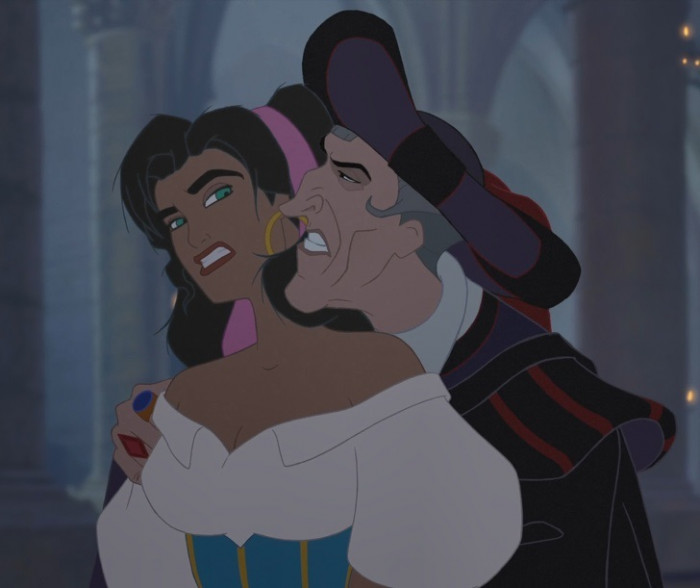 The Hunchback of Notre Dame / Walt Disney Animation Studios
The Hunchback of Notre Dame / Walt Disney Animation Studios
#2 Depression and mental health - Inside Out (2015)
Inside Out, when you think about it, is a film about the way depression manifests and progresses.
When Riley first moves to San Francisco, she develops depression because she feels pressured not to disappoint her parents. She suppresses her real feelings. She's sad.
We start to see the feelings in her head. 'Sadness' becomes over-active, taking over everything. 'Joy' then tries to restrict 'Sadness' by locking her in a circle.
But when they both disappear, Riley can't feel anything. She can't be happy or sad, and she slips into a deep depression. The movie shows how depression progresses and destroys her. It shows all the feelings she goes through, from fear to anger, to eventually feeling nothing at all.
The film is powerful in the way it explains mental health and feelings to children, teaching them that it's okay to not feel happy all the time and that it's important to accept all of our emotions.
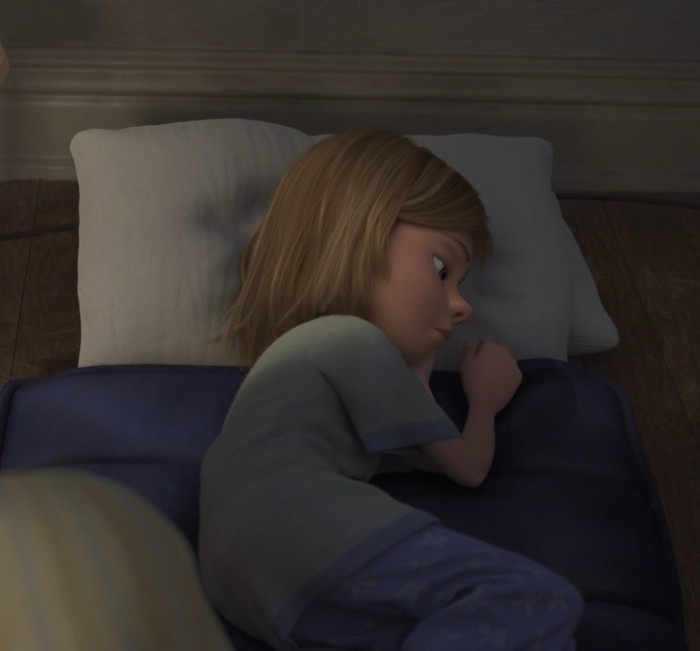
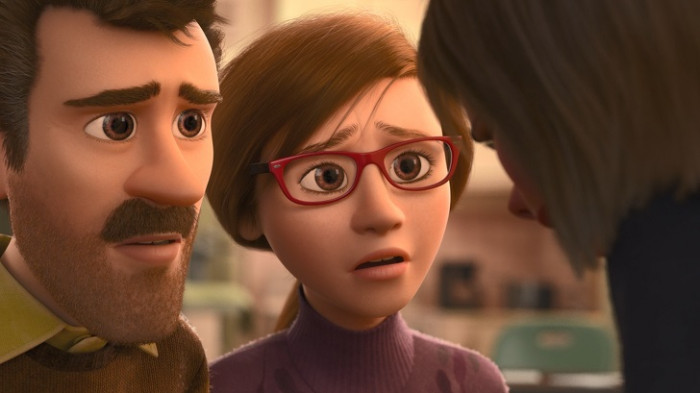
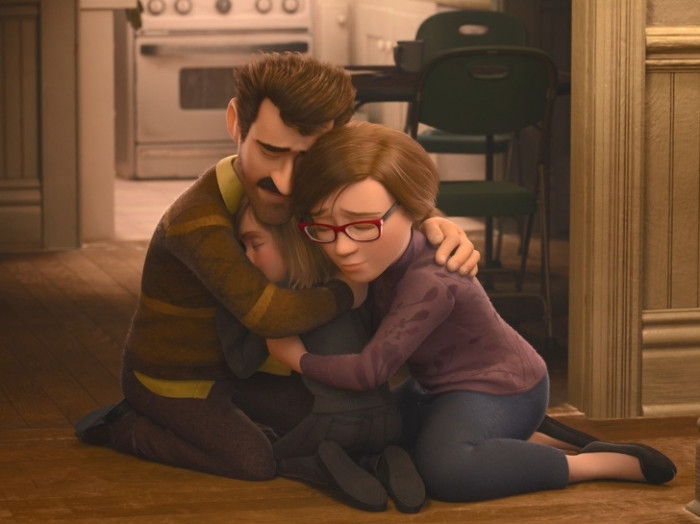
#3 Child custody and loss - Lilo & Stitch (2002)
Lilo & Stitch ultimately is about two orphaned sisters, desperately trying to overcome the loss of their parents, and continue being a family. Lilo was hit the hardest, and she deals with her grief by acting out and misbehaving, making things even harder for her older sister, Nani, who now has to work extra hard to keep custody of her.
Things get even tougher when social services get involved, threatening to take Lilo away. The film shows the struggles of child custody and a broken family, as well as how hard it is for a child to overcome loss.
This film is filled with beautiful lessons for children and adults alike. It teaches us to be kind and to trust others. And of course that, “Ohana means family, and family means nobody gets left behind or forgotten.”
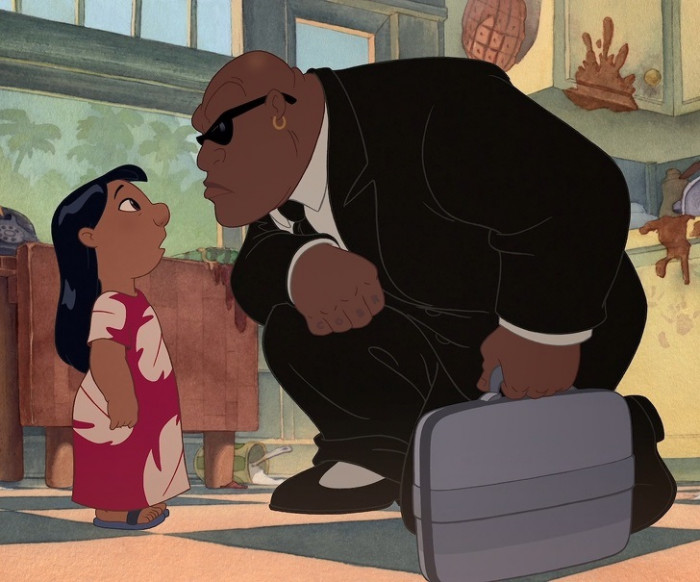

#4 Mental impairment - Finding Dory (2016)
Dory is a little blue fish who has problems with her short-term memory. When she gets swept away and loses her parents, she is completely lost and doesn't know who she is. This is the sad reality many people with amnesia disorders face.
But short-term memory loss isn't the only disorder brought up in the film. There are a few characters Dory meets on her journey, that represent different mental illnesses. For example, Hank the octopus suffers from depression, and Bailey the whale has severe anxiety.
The film teaches acceptance to children, especially in regards to people who may have mental disorders. It encourages them to overcome their problems or differences and follow their dreams.


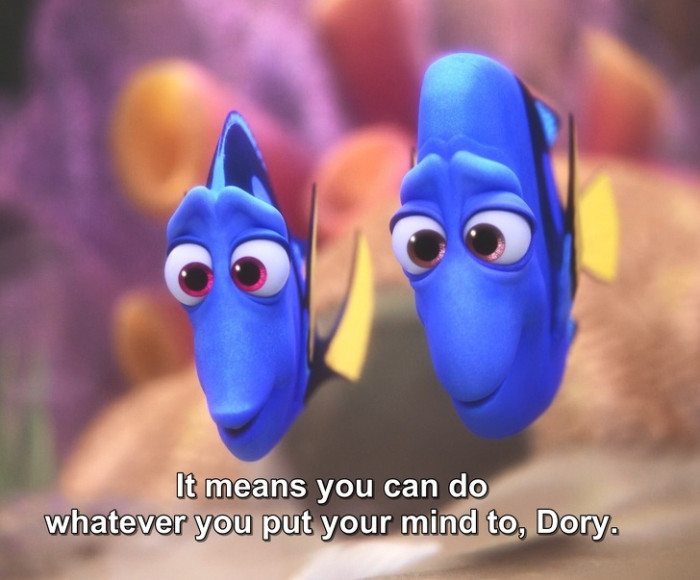
#5 Social minorities - Frozen (2013)
In Frozen, Elsa was forced to hide her powers from when she was a child. Even her parents preferred to make her try and fit in, rather than to try and help her learn how to accept herself. They even gave her gloves to try and hide her uniqueness, and make her appear 'normal' to the outside world.
When people eventually discovered she had magic powers, they called her a monster. She had never done anything wrong, or hurt anyone, but people refused to accept her because she was different. This is such an important and valid lesson for children because this happens every day in real life.
The film teaches us to accept people and their differences, whether they are considered social minorities, or have disabilities. We all deserve to be accepted and valued for who we are.




#6 Dictatorship - Toy Story 3 (2010)
Toy Story 3 tells the story of a grown-up Andy donating all his toys to a daycare center that is ruled by a teddy bear called Lotso. He tries to make the center look like a paradise, however, it turns out to be a dictatorship, led by the bear.
The film illustrates the vast aspects of dictatorship, from a powerful leader to the various social classes to forced labor.
There are valuable lessons about respect to be learned along the way.
As Barbie says, “Authority should derive from the consent of the governed, not from the threat of force!”
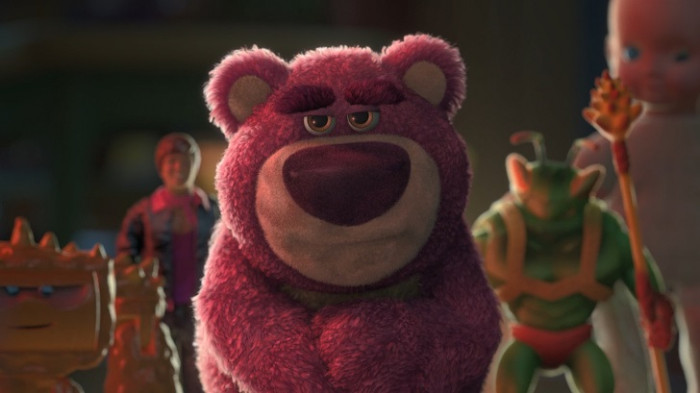

#7 Bullying - Wreck-It Ralph (2012)
In Wreck-It Ralph, Vanellope was the object of bullying because she wasn't like other girls in her game. Her game was glitching, and she was constantly teased and humiliated by her peers. But, regardless, Vanellope was always friendly towards them, no matter how cruel they were to her.
No doubt, many children can relate to Vanellope's character and how she was treated in the film. Bullying is extremely widespread in our world, and most children will deal with it at some point growing up.
In this film, Disney supports the victims of bullying and encourages them to be strong and embrace the differences that make them truly unique.

#8 Parental abuse - Tangled (2010)
In Tangled, Mother Gothel is constantly trying to destroy Rapunzel's self-esteem by mocking her physical appearance. She laughs at her and questions how anyone could ever possibly find her attractive. Moreover, she tells Rapunzel that she is naive, and would never stand up for herself, essentially trying to make her emotionally dependent on her evil mother forever.
Rapunzel isn't allowed to leave the tower at all and has no free will, which is a pretty good representation of some toxic overprotective parents in real life.
Mother Gothel only ever expressed her love toward Rapunzel's beautiful long hair, not to her directly. She doesn't love her daughter, and she constantly tries to manipulate her. This is the perfect example of an emotionally abusive parent.



Stephanie







